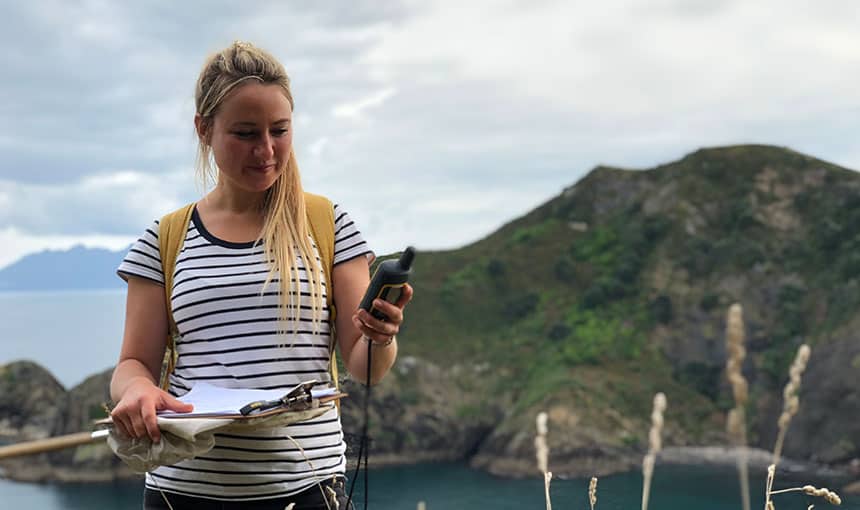The Auckland University PhD candidate is in her final year investigating the impact of wasps on offshore island ecosystems. Her work is part of a BioHeritage project that aims to deliver a significant change in wasp management in New Zealand.
“The most unexpected discovery was that ‘pest’ or ‘predator-free’ islands are not taking into account this important introduced predator. The majority of islands surveyed in 2018 held high densities of predatory wasps,” Julia says.
“Even ‘wasp-free’ islands are only free of Vespula species such as the German and common wasp (V. germanica and V. vulgaris), yet, we still recorded high numbers of Asian and Australian paper wasps (Polistes chinensis and P. humilis).”
Julia found there were more wasps present on islands that were closer to the mainland, had lower canopy cover and were inhabited by people.
However, she found no correlation between mammalian pest numbers and those of wasps. The wasp population also didn’t change as a result of local tree species being native or exotic.
“Many wasps are found on islands such as Waiheke that are close to the mainland, have a high percentage of pasture land and are inhabited.”
She says many offshore islands are vital for protecting endangered, endemic New Zealand species (those found only in New Zealand), so they need to be safeguarded from all pest species.
“As we focus on restoration of offshore island ecosystems in future, we need to consider factors that can help reduce wasp populations such as increasing forest canopy cover and reducing human impacts on the land,” Julia says.
“Monitoring wasp abundance on important island sanctuaries should become part of the management agenda when planning control programmes.”
The next step in Julia’s research is collecting another year’s data to see if the pattern holds.
